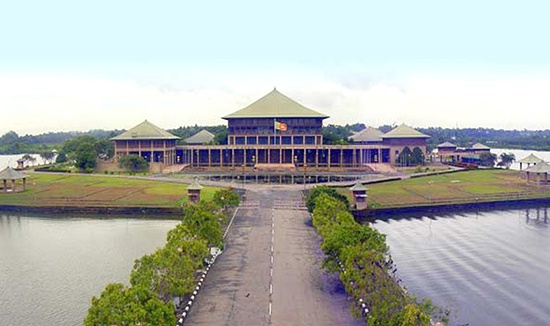Opinion
What to do with parliamentary privileges?

Everybody, it seems, is appalled by the attraction of politics as a haven for the “Intellectually challenged”. It is revealed that some 60 % or something, in Parliament (the Head Office for Democracy) do not boast of six passes at the “O/Level”. The actual numbers are unimportant, because even one (in 225) is excess. (Please, ask the peons who strut around the chamber, keeping the water bottles of MPs recharged. Their percentage will surely be higher). For their contributions to state performance, even Tapeworms would probably be more generous in the returns to their hosts.
But give it to the grandees and their ingenuity, they use a very fine method. This is to bestow as many as possible doctorates – thereby raising the average – assuming that credits are transferable! Suits me, as my conscience does not permit the use of ‘honourable’, I feel more comfortable with Dr. – at least I would be right 50% of the time, and still rising!
It has often been stated that members of the Singapore Legislature are among the highest paid in the world, but as the Chinese itinerant cloth seller of yore would say to the bargaining housewife, “Yes, m’am, but good things are not cheap, and cheap things are not good”. It has to be noted that in the Singapore comparison, the much-envied numbers are “absolutely all-inclusive”. No housing allowances, cars, petrol, attendance fees, subsidised meals, light bills, telephones, medicals or any other. I believe the legendary Lee- Kwan- Yew, who generously conceded that any of his cabinet “was at perfect liberty to dwell in the swankiest neighbourhood, or own the poshest vehicle – but at his cost.” The soon retiring German Chancellor, Angela Merkel was asked, “Why are you always clad in the same overcoat? Do you not own another?” Retorted she, “I am a public servant and not a fashion model!” What modesty, what class!
To get over our problem that the principle should be “Performance must match emoluments” There is a simple method of doing so. As a working proposition: Every member should draw as an emolument their last drawn salary (or fee) multiplied by a pre-agreed factor of five, 10 or even 20 (or whatever), as all-inclusive remuneration (supported by the last income tax declaration). Beyond that, no other payments or perks, hidden or otherwise whatever. It would be a great index of sincerity, if such a proposal were to be voted upon, by a secret ballot, if desired. One other compelling benefit will be that the vehicle permits would cease to be. We cannot afford to have criminals in our Parliament. If this suggestion secures approval, a great improvement in quality of debate, behaviour, decorum and usefulness will soon pay-off.
The vehicle permit issue deserves further mention because one justification is laughable and serious at the same time. One person close to the political centre and thus reliable, ventured that contesting an election was very costly, and beyond the reach of the capable and the untainted. Only drug kingpins, smugglers, cheats, procurers and similar criminal types could afford such an investment. All agree that an improved composition of Parliament membership is urgently needed. Therefore, the honest ones selected, deserve some means of recovering their costs. So, what could be wrong in their selling a privilege – vehicle permit, petrol coupons, fake medical claims, etc.? And if I may add, “Take-away packs” of the heavily subsidised restaurant grub?
But some problems arise with such a cozy attempt to justify this clearly improper practice. The major problem is, why did not this principle of “The end justifies the means” apply in the case of that poor woman who attempted to pinch two packets of milk powder to feed her starving kids, or that girl arraigned for picking a few fallen coconuts to help pay for her class books?
One may well be tempted to ask “Why should not those who make the Law (Legislators) be also permitted to break them?”. Or, in the case of politicised appointees, “Why should not the person who appoints, be denied the right to “disappoint”? Neat but not logical enough. Two wrongs do not make a right. Or, do they?
Dr. UPATISSA PETHIYAGODA